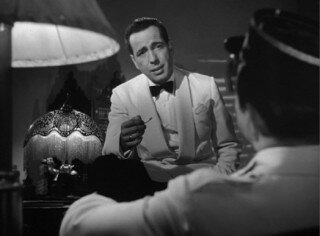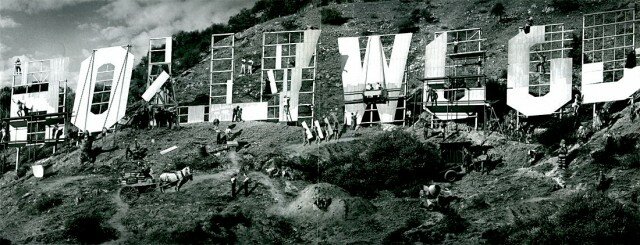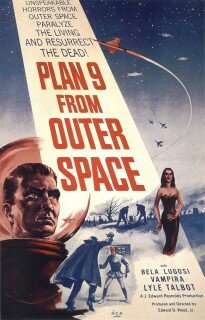Last week I was talking with Heather Hollick about the core concept of New Media Leaders, the idea of a distributed team of experts who are called in foe a short term engagement to fix a problem.

Humphrey Bogart in Casablanca (1943)
One vital techniques used to support the studio system was block booking, a system of selling multiple films to a theater as a unit. Such a unit—five films was the standard practice for most of the 1940s—typically included only one particularly attractive film, the rest a mix of A-budget pictures of lesser quality and B movies. Life magazine wrote in 1957 in a retrospective on the studio system:
It wasn’t good entertainment and it wasn’t art, and most of the movies produced had a uniform mediocrity, but they were also uniformly profitable … The million-dollar mediocrity was the very backbone of Hollywood.
Does that sound like your last engagement with an agency?
The goal of an agency is to bring in big clients that have big budgets so that you can hire great people and produce great work. Then you can attract even bigger clients with even bigger budgets.
Nowhere in an agency ethos is “solve our clients problems so they no longer need us”.

Now there is a free-agent type of thinking in Hollywood. If you want to make a film, you get a budget, hire the best people you can, bring them together and make art. At the end of a few months, everybody disperses to go back to their normal life.
Life on the web is also well-suited for the free-agent type of engagement. Your website doesn’t need a babysitter, it needs more visitors, or conversions, or better content. All of those items come from a short-term engagement with laser-like focus and a teacher’s mentality.
 The traditional agency model is very much like MGM and Paramount in the 1940’s. They are stocked with talent and can put out a great product, but also put out B-films at least as often as a gem. In the end, the question is, are you getting Casablanca or Plan 9 from Outer Space?
The traditional agency model is very much like MGM and Paramount in the 1940’s. They are stocked with talent and can put out a great product, but also put out B-films at least as often as a gem. In the end, the question is, are you getting Casablanca or Plan 9 from Outer Space?
One of my favorite quotes comes from Roger Sterling in Mad Men (season 1, episode 10 – Long Weekend):
The day you sign a client is the day you start losing them.
At the agencies I’ve worked at, that was always the case. An agency is never as attractive as the day you sign the first big contract when they’ve spent weeks or months courting you and promising you the moon.
This article is absolutely true yet it leaves out the cyclical nature of the entertainment business and what’s happening now in Hollywood. Today it’s easier to get independent movies made with major directors raising their budgets on Kickstarter, but securing distribution in movie theaters is harder than ever, and so even though it’s easier to make those smaller budget movies, it’s harder to get them seen. That’s why we’re seeing a resurgence of big studio tentpole rebrands (think “Beverly Hills Cop 4″ and “Insert Movie Title Here part 6″) and budgets are going higher and higher, over $200Million, as studios are struggling to get people into movie theater seats by spending more and more on “above the line” talent and special effects, and often their efforts are still failing. The entertainment business as we once knew it is gone. What the article gets right is that the studio system behemoth crashed once, and although it doesn’t say this in so many words, it’s about to crash again. And while it’s not exactly clear where the future of the entertainment business lies for independent filmmakers, it is true that the marketplace is shifting and there are more ways to get your movie in front of an audience today than ever before… just not necessarily in movie theaters. The analogies to Digital Agencies are spot on. As web development tools and creative software proliferate and become more affordable and in some cases even free in the cloud, and as the talent pool continues to expand, and individuals become more resourceful, the digital marketplace is getting more competitive and the big agencies are going to have to work harder to keep up with the changes.
Your right Evan, I think everyone can agree that the current quality of big budget movies coming out of Hollywood is pretty bad.
I think many of us feel that the overall quality of product coming out of any large integrated business these days lacks the excitement and soul that makes things interesting to the zero-attention-span web consumer.